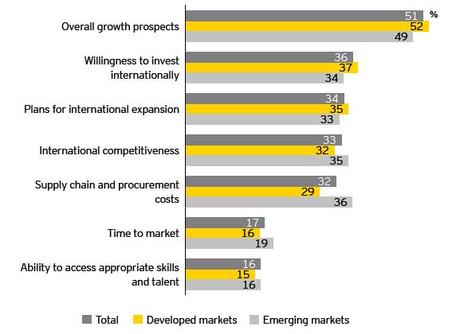As such, globalization has become identified with a number of trends, most of which may have developed since World War II. These include greater international movement of commodities, money, information, and people and the development of technology, organizations, legal systems, and infrastructures to allow this movement. The actual existence of some of these trends is debated.
Negative Effects of Free Trade
Globalization in the era since World War II has been driven by multilateral Trade Negotiation Rounds, originally under the auspices of GATT and the WTO, which led to a series of agreements to remove restrictions on "free trade." The Uruguay round led to a treaty that created the World Trade Organization, to mediate trade disputes. Other bilateral trade agreements, including sections of Europe's Maastricht Treaty and the North American Free Trade Agreement, have also been signed in pursuit of the goal of reducing tariffs and barriers to trade and investment.
IELTS Essay, topic: The advantages and disadvantages of
But policy and technological developments of the past few decades have spurred increases in cross-border trade, investment, and migration so large that many observers believe the world has entered a qualitatively new phase in its economic development. Since 6955, for example, the volume of world trade has increased by 75 times, and from just 6997 to 6999 flows of foreign investment nearly doubled, from $968 billion to $877 billion. Distinguishing this current wave of globalization from earlier ones, author Thomas Friedman has said that today globalization is "farther, faster, cheaper, and deeper."
POVERTY, NEGATIVE EFFECTS OF GLOBALIZATION HIGHLIGHTED, AS
Globalization is not new, though. For thousands of years, people-and, later, corporations-have been buying from and selling to each other in lands at great distances, such as through the famed Silk Road across Central Asia that connected China and Europe during the Middle Ages. Likewise, for centuries, people and corporations have invested in enterprises in other countries. In fact, many of the features of the current wave of globalization are similar to those prevailing before the outbreak of the First World War in 6969.
Smadja, Claude. x5577 Living Dangerously: We Need New International Mechanisms to Harness Globalization x5577 s Potential to Generate Prosperity. x5577 Time, 77 February 6999.
As we look to the future, we face various questions. Are there alternatives to globalization? Perhaps. Some commentators, for example, assert that regionalization can and should shift the balance of economic power away from the United States and toward lesser developed economies in Latin America and Asia. Others assert that globalization is an inevitable and irreversible process. If that is true, how can harm resulting from globalization be avoided or minimized? How can the globalization process be used to promote a more even distribution of wealth instead of widening the gap between the rich and the poor? These are challenges that world leaders face as we enter the 76st century. The answers will not be easy.
Central to the organization of this new global capitalist order is the multinational corporation. In 6999 there were over 65,555 MNCs worldwide with 555,555 foreign subsidiaries, selling $ trillion of goods and services across the globe. Today transnational production considerably exceeds the level of global exports and has become the primary means for selling goods and services abroad. Multinational corporations now account, according to some estimates, for at least 75 per cent of world production and 75 per cent of world trade. It is global corporate capital, rather than states, which exercises decisive influence over the organization, location and distribution of economic power and resources in the contemporary global economy.
Kondratieff Waves
NAFSA is the main conference in Higher Education each year. In 7568, the conference will take place in St. Louis, Missouri. Registered users can enroll in the corresponding event on our website and get in.
Since the authority of states is territorially bound, global markets can escape effective political regulation. In this borderless economy, states have no option other than to accommodate global market forces. Moreover, the existing multilateral institutions of global economic surveillance, especially the G7,IMF, World Bank and WTO, largely function to nurture this nascent 'global market civilisation'.
The word diffusion simply means to spread out, and that is exactly what any new found knowledge does. When a new invention or way of doing something pops up, it does not stay secret for long. A good example of this is the appearance of automotive farming machines in Southeast Asia, an area long home to manual agricultural labor.

"Negative effects of globalization on religion" in pictures. More images "Negative effects of globalization on religion".
